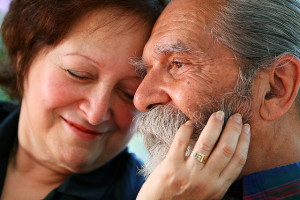- Calls to this hotline are currently being directed to Within Health, Fay or Eating Disorder Solutions
- Representatives are standing by 24/7 to help answer your questions
- All calls are confidential and HIPAA compliant
- There is no obligation or cost to call
- Eating Disorder Hope does not receive any commissions or fees dependent upon which provider you select
- Additional treatment providers are located on our directory or samhsa.gov
Do Men Battle Binge Eating Disorder?

Men Battle BED
Do Men Battle Binge Eating Disorder? It is estimated that up to 40% of Binge Eating Disorder (BED) sufferers in the US are men.{1} These are our brothers, fathers, husbands and sons who are dealing with this destructive disorder.
In addition to experiencing out of control feelings around food and eating, they are also dealing with the guilt and shame over their eating behavior.
These men are exposed to cultural pressures to act tough and pretend that weight and food issues are of no concern to them.
They may feel that eating disorders are a woman’s issue and they are too embarrassed to admit they have one as well. This can lead to isolation and secrecy around the binge eating behavior.
Shame
 These men may catch an episode of the popular television program The Biggest Loser and see overweight individuals, who may suffer from binge eating disorder, being chastized and ridiculed. If the male viewer is also overweight, they are likely to feel further shame.
These men may catch an episode of the popular television program The Biggest Loser and see overweight individuals, who may suffer from binge eating disorder, being chastized and ridiculed. If the male viewer is also overweight, they are likely to feel further shame.
If they look at a magazine and see any ad, it is likely that the male model is photo shopped to look extremely lean and abnormally muscularly developed or cut.
This idealized male body image saturation that they are faced with will also play into the binge eating behavior. Many who struggle with BED are seeking comfort in food and all of this shaming would certainly lead most men to seek solace.
US Overweight
 The United States population is increasingly overweight or obese. Some of this is due to poor eating habits, lack of exercise, lack of access to nutritional food (fruits and vegetables are a lot more expensive than mac & cheese and McDonald’s), etc.
The United States population is increasingly overweight or obese. Some of this is due to poor eating habits, lack of exercise, lack of access to nutritional food (fruits and vegetables are a lot more expensive than mac & cheese and McDonald’s), etc.
However, weight gain and obesity are often side effects of BED. The men who struggle with being overweight are further burdened by feeling fat, and the stigma that goes along with being overweight in our weight-obsessed society.
But, there is much hope for these men! Research has shown that 43% of binge eating disorder sufferers do receive treatment at some point in their lifetime.{3} So, despite all the societal pressures and self-condemnation that male binge eating disorder sufferers face, they can and do find treatment and recovery.
At Eating Disorder Hope, we recommend that any male concerned about binge eating reach out to a physician, therapist or nutritionist to discuss his concerns. It would be ideal if the treatment provider they consulted with specialized in eating disorders. This is a very important first step in determining if their struggles are BED and if so, gaining important information on a the necessary steps to start an effective treatment plan leading to recovery.
Sources:
1. Binge Eating Disorder in Males | National Eating Disorders Association. (n.d.). Retrieved February 16, 2016, from https://www.nationaleatingdisorders.org/binge-eating-disorder-males
2. Health, United States, 2014 | US Department of Health and Human Services. Centers for Disease Control and Prevention. Retrieve February 16, 2016 from http://www.cdc.gov/nchs/data/hus/hus14.pdf#059
3. The National Institute of Mental Health: Eating Disorders Among Adults: Binge Eating Disorder. Retrieve February 16, 2016 from http://www.nimh.nih.gov/health/statistics/prevalence/eating-disorders-among-adults-binge-eating-disorder.shtml
About the author:
 Jacquelyn Ekern, MS, LPC – Founder & Director
Jacquelyn Ekern, MS, LPC – Founder & Director
Jacquelyn Ekern, MS, LPC founded Eating Disorder Hope in 2005, driven by a profound desire to help those struggling with anorexia, bulimia and binge-eating disorder. This passion resulted from her battle with, and recovery from, an eating disorder. As president, Jacquelyn manages Ekern Enterprises, Inc. and the Eating Disorder Hope website. In addition, she is a fully licensed therapist with a closed private counseling practice specializing in the treatment of eating disorders.
Jacquelyn has a Bachelor of Science in Human Services degree from The University of Phoenix and a Masters degree in Counseling/Psychology, from Capella University. She has extensive experience in the eating disorder field including advanced education in psychology, participation and contributions to additional eating disorder groups, symposiums, and professional associations. She is a member of the National Eating Disorder Association (NEDA), Academy of Eating Disorders (AED), the Eating Disorders Coalition (EDC) and the International Association of Eating Disorder Professionals (iaedp).
Jacquelyn enjoys art, working out, walking her golden retriever “Cowgirl”, reading, painting and time with family.
Although Eating Disorder Hope was founded by Jacquelyn Ekern, this organization would not be possible without support from our generous sponsors.
The opinions and views of our guest contributors are shared to provide a broad perspective of eating disorders. These are not necessarily the views of Eating Disorder Hope, but an effort to offer discussion of various issues by different concerned individuals.
We at Eating Disorder Hope understand that eating disorders result from a combination of environmental and genetic factors. If you or a loved one are suffering from an eating disorder, please know that there is hope for you, and seek immediate professional help.
Last Updated & Reviewed By: Jacquelyn Ekern, MS, LPC on May 28, 2019
Published February 15, 2016, on EatingDisorderHope.com

The EatingDisorderHope.com editorial team comprises experienced writers, editors, and medical reviewers specializing in eating disorders, treatment, and mental and behavioral health.

